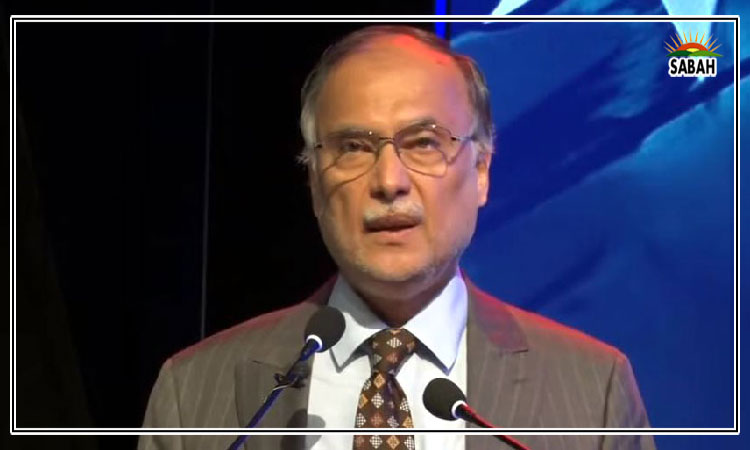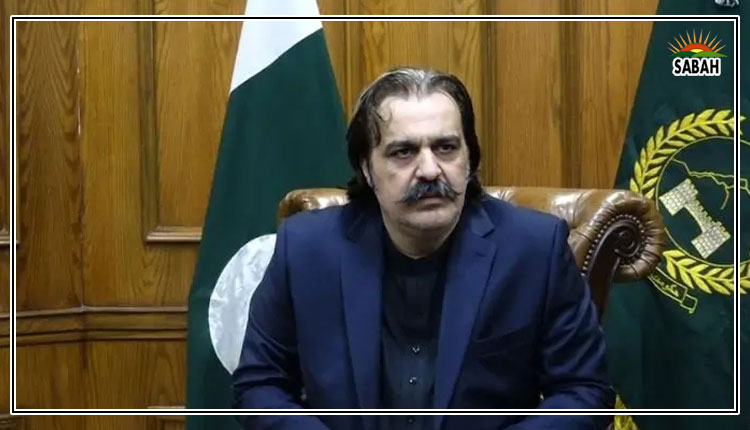Need for radical ideas…Ammar Habib Khan
The economy has been in a tailspin for the last few years, and the way everything is being managed (or not managed), it is only going to get worse. High inflationary expectations are deep-rooted at this stage, throwing out any guidance that has been provided by the central bank in the last many years. Doing the exact opposite of what the central bank has been saying over the last many quarters has been the right approach, clearly demonstrating the inability of the central bank to meet its core objective of price stability.
The failure to ensure price stability has led to a scenario where the economy remains highly exposed to movement of the rupee-dollar parity. A movement in this triggers a chain reaction that results in additional rounds of inflation, squeezing the middle and lower-income groups even further. Disastrous fiscal and monetary policies over the last few years have effectively killed a thriving middle class.
Inaction and lack of willingness to sort out the energy crisis over the last fifteen years by successive governments has led to a scenario where the crisis has reached a tipping point. Households and businesses alike do not have the capacity to bankroll the government’s inefficiency.
Despite surplus generation capacity, the refusal of successive governments to reform transmission and distribution networks, while also reducing incidence of taxation on electricity bills, has led to a scenario where households and businesses do not have the capacity to pay electricity bills. Due to this, the ability of distribution companies to operate will be hampered further, and a complete collapse cannot be ruled out if electricity consumers stop paying their bills. The inability of the government to understand how demand elasticities work may potentially lead to a collapse, unless reforms are initiated on a fast-track basis.
There is a need for radical ideas, and radical reforms. Too much time has been wasted at a very high human and financial cost in even initiating reforms. The cost of not doing anything, or not initiating radical reforms, is much higher than a cost that may be accompanied with certain reforms. Relying on the same coterie of people to solve the mess when they were the ones who created the mess earlier isnt the brightest idea around. The current crisis of inflation can largely be linked to increase in money supply, and currency in circulation over the last few years. An increase in money supply effectively represents an increase in sovereign debt which continues to increase to bridge fiscal deficits.
The country has reached a point where mark-up payments on sovereign debt make up more than 70 per cent of provincial and federal revenue collected. As the sovereign continues to print more money, the currency in circulation in the economy will continue to increase, which will continue to put upward pressure on demand, amidst constrained supply eventually leading to a weaker Pak rupee. There is a dire need to reduce currency in circulation in the economy, such that demand emanating from the informal economy can be tamed, and capital available in the system can increase, eventually resulting in a gradual reduction in interest rates in the economy.
Demonetization is one radical idea that is not palatable for those who have vested interests, who incidentally are also those who make policy decisions. An elimination of the five thousand rupee currency note over a period of a few weeks (or even days) is a radical idea that can not only shrink the informal economy, but also bring capital back into the system. Food shortages and smuggling are enabled by excess circulation of currency in the economy clamping down on the same will also reduce the incidence of smuggling through monetary tools, since other tools have largely failed lately.
Concurrently ramping up the digital payment regime, ensuring that every single resident of the country gets a bank account, and making taxation more efficient and people-friendly will be critical to ensure that the capital remains with the system. The currently excessive and downright anti-business and anti-people taxation regime will have to be reworked such that it stops incentivizing an informal market. This will require a radical shift in the mindset of the central bank, the tax authorities, and the finance division the old tricks wont work anymore, just like they havent been working for the last many years.
Fixing the energy conundrum will also require a tangential departure from the way things are managed currently. The current electricity tariff paid by the consumer is overloaded with taxes, which make up more than one-third of the total tariff. Similarly, the tariff is also closely linked with the rupee-dollar parity, a depreciation of the rupee eventually leads to an increase in electricity tariff for the consumer. There is a need to break this direct link.
The foreign currency component of electricity tariff is a function of foreign currency debt of power plants, fixed operations & maintenance cost of power plants, and the guaranteed return component. The guaranteed return component can remain unchanged, as any change to the same would imply reneging on sovereign commitments, which we have done multiple times, and have paid dearly for the same.
But a case exists to swap out the foreign currency debt of power plants with the sovereign, effectively replacing the same with local currency debt. In-effect, almost all long-term debt of power plants is already paid, once the sovereign has sufficient foreign currency liquidity to pay the same effectively, it already is sovereign risk. Swapping foreign currency debt to the sovereign would reduce the sensitivity of the electricity tariff to the depreciation of the rupee that is paid by the consumer. As the link is broken, it will be possible to taper off any substantial increase in electricity tariffs. Similarly, it makes no sense to have a dollarized fixed operations & maintenance component for a 30-year period, when most of the same skills and capacity can be developed locally. A plan to gradually transition out the same can also be considered, which cannot just reduce sensitivity to rupee depreciation, but also develop downstream capacity.
These are some radical ideas that many who have vested interests may find uncomfortable. They may even not be perfect, but there is always room to optimize and make things better. The way out of the current economic mess is very clear, and only requires better policymaking and tactical interventions, such as demonetization or swapping out foreign currency debt. Such interventions do not have any associated capital cost, and the only thing it requires is the willingness of policymakers to do something for the people of the country. In the absence of such a will no idea that solves the problems of the people can work.
Courtesy The News












